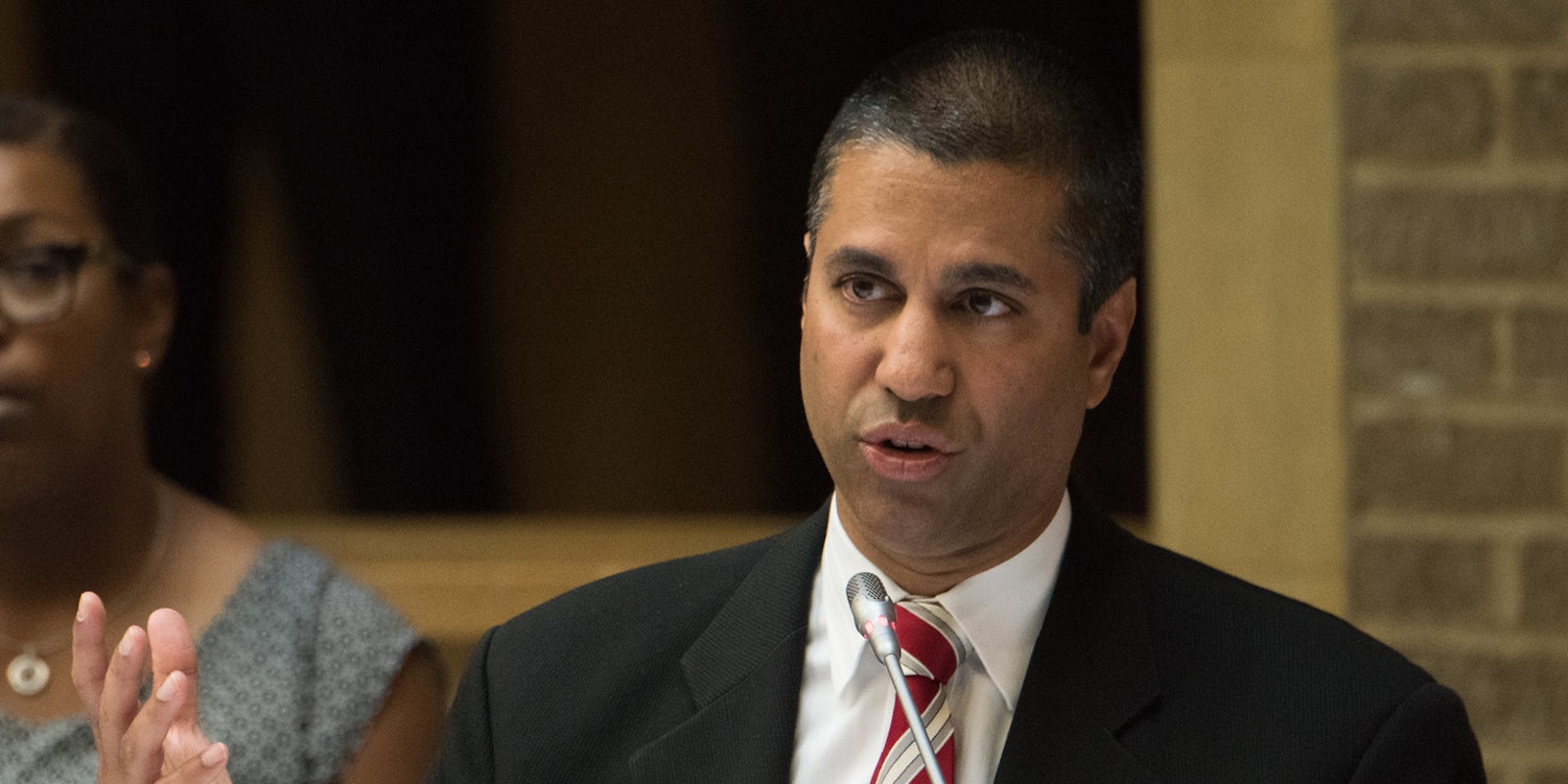Federal Communications Commission (FCC) Chairman Ajit Pai announced on Monday that he will step down from the agency on Inauguration Day.
Pai, who drew the ire from many activist and tech advocacy groups for his shepherding of the repeal of net neutrality rules, will follow tradition by stepping down. Pai was appointed as the head of the agency by President Donald Trump in January 2017.
The chair of the FCC traditionally steps down from the commission, even if their term is not completed, when a new president comes into power.
The FCC is supposed to have five members, including the chairman, which is chosen by the president. Three of the commissioners are supposed to be from the president’s party, with the other two the opposite party.
President-elect Joe Biden will be able to select a new chairperson for the commission. However, there is still uncertainty as to what the makeup of the FCC will look like come January.
The repeal of net neutrality rules will be marked as one of the most consequential moments in Pai’s tenure as chairman, and at times he seemed to revel in the controversy it created. The repeal of the rules was part of an overarching deregulatory agenda Pai pushed at the helm of the FCC.
Net neutrality was in the crosshairs immediately for Pai, who promised to take a “weed whacker” to regulations once Trump took office and said net neutrality’s “days are numbered” ahead of being chosen to head the agency.
In 2017, the FCC voted to repeal net neutrality rules and the decision lingered throughout his time as chairman. Following the decision, there was a years-long legal battle, challenges in states, and pushes from Congress to create a law that would re-establish the rules.
Ultimately the FCC doubled down on its decision last month, essentially saying that parts of the repeal a federal court asked it to re–examine were settled.
Pai’s announcement on Monday was celebrated by tech advocacy groups that have pushed against his agenda throughout his tenure.
“His callous attack on net neutrality and blatant coddling of Big Telecom monopolies sparked the largest cross-partisan online backlash in the modern era,” Evan Greer, deputy director of Fight for the Future, said in a statement. “As he fades into the background, his smug demeanor and giant Reese’s mug will become cautionary memes––reminding internet users what happens when we don’t hold our government accountable.”
The post-Ajit Pai FCC is still uncertain
While Pai is stepping down, the makeup of the FCC moving forward is still up in the air. The Senate Commerce Committee is scheduled to vote this week on whether to advance Nathan Simington, Trump’s pick for the FCC, to a full vote in Congress’ upper chamber.
Simington is a controversial choice because of his connections to Trump’s social media executive order. That order targets Section 230 of the Communications Decency Act, a law that shields websites from being held liable over what is posted on them by third parties.
The law has been hailed as a vital internet law and advocates have warned that changes to it could have wide-reaching ramifications.
Read more about the FCC
| Gigi Sohn calls Republican accusations against her a big telecom-led effort to keep the FCC deadlocked |
| FCC says 10 million homes have now signed up for affordable internet subsidy |
| ISPs won’t quit trying to derail California’s ‘gold standard’ net neutrality law |
| FCC agrees to crack down on ‘sweetheart deals’ that restrict broadband choice in apartments, condos |
| Sign up to receive the Daily Dot’s Internet Insider newsletter for urgent news from the frontline of online. |


